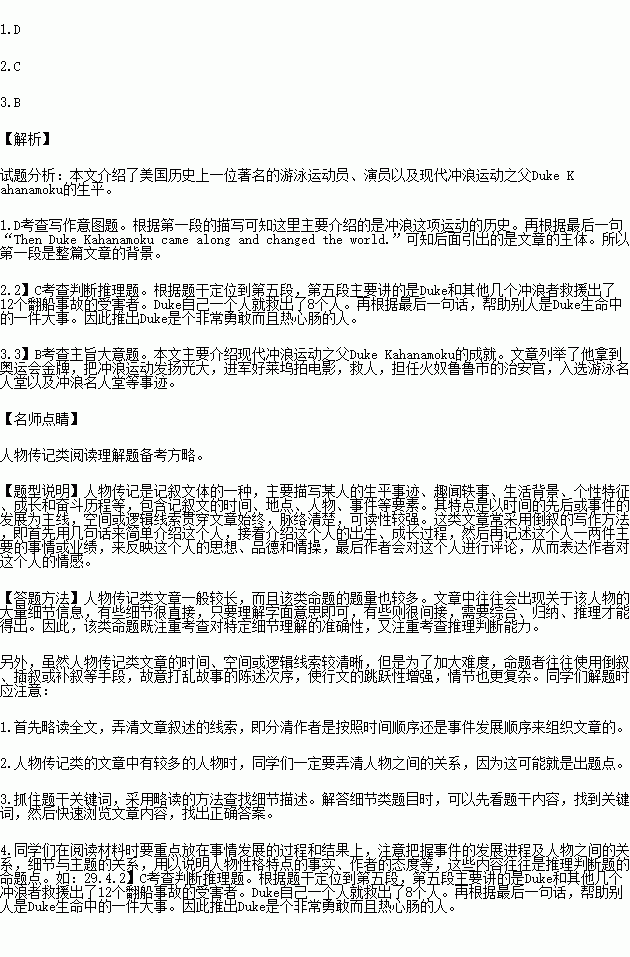题目内容
In the history of Hawaii, surfing is a serious thing. Ancient leaders used the sport as a training exercise to keep themselves strong. They also used surfing competitions instead of wars to solve conflicts between people. For a long time ,this tradition of surfing was known mainly to the people of Hawaii. Then Duke Kahanamoku came along and changed the world.
When he was 21years old, Duke broke two world swimming records. Not surprisingly, Duke easily made the Olympic swimming team in 1912.During his Olympic career, Duke won three gold medals and two silver medals in swimming.
When Duke finished winning medals at the Olympics, he toured the world. He also brought along his surfboard. Duke had been surfing ever since he was a little boy. In 1917,he rode a single wave for more than a mile! Duke amazed people by riding his 16-foot-long board. He is considered the father of modern surfing.
Since Duke was handsome and strong, people loved to watch him. His next career move was clear. Duke headed for Hollywood. From 1925 to 1955,he made more than 30 movies.
One day in 1925, Duke and a few other surfers were hanging out on the beach when a boat turned over not far from them. The surfers hit the waves with their big boards and saved 12 of the passengers. Duke alone saved eight of them! After that, lifeguards at beaches started using surfboards to save swimmers. Helping others was a big thing in Duke’s life.
In 1932,Duke became sheriff(治安官)of Honolulu, Hawaii, holding the position for almost 30 years. As sheriff, in fact, his job was to greet visitors who came to the city .From the Olympics to Hollywood, Duke Kahanamoku had put Hawaii on the map when it was still a little known island.
When he was 75 years old, Dukes name was added to both the Swimming Hall of Fame and the Surfing Hall of Fame. He died in 1968 at the age of 78.
1.The first paragraph serves as a(an)_______.
A. explanation B. introduction
C. comment D. background
2.What can we infer about Duke according to paragraph 5?
A. He was modest and honest.
B. He was clever and confident.
C. He was brave and kind-hearted.
D. He was generous and open-minded.
3.What is the text mainly about?
A. The development of Hawaii.
B. The achievements of Duke.
C. The personal life of Duke.
D. The history of surfing.



 Following the road and you will find the store.
Following the road and you will find the store.